Search
Did you mean: Tophet?
Search Results
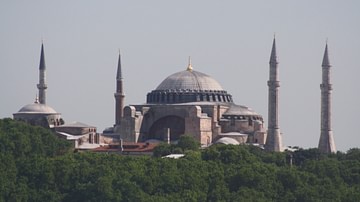
Definition
Hagia Sophia
Hagia Sophia in Istanbul, constructed 532-537, continues to be revered as one of the most important structures in the world. Hagia Sophia (Greek Ἁγία Σοφία, for 'Holy Wisdom') was designed to be the major basilica of the Byzantine Empire...
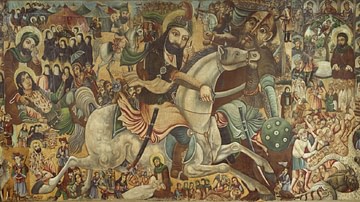
Article
Battle of Karbala
The Battle of Karbala (10 October 680 CE) was a small-scaled military engagement, fought near the river Euphrates, in modern-day Iraq, which saw the massacre of heavily outnumbered Alid troops under the command of Husayn ibn Ali (l. 626-680...

Definition
Moses
Moses (c. 1400 BCE) is considered one of the most important religious leaders in world history. He is claimed by the religions of Judaism, Christianity, Islam and Bahai as an important prophet of God and the founder of monotheistic belief...
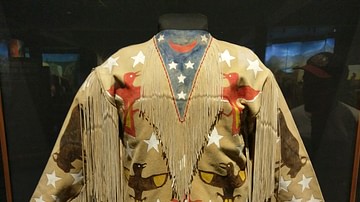
Definition
Ghost Dance
The Ghost Dance (Spirit Dance) is an expression of rebirth and renewal using the traditional Native American circle dance, first practiced by the Paiute Nation in 1869 and again in 1889 when it was adopted by other Plains Indians nations...
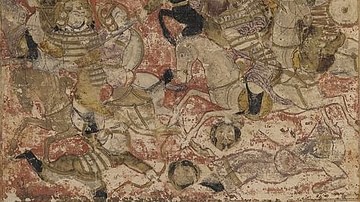
Definition
First Fitna
The First Fitna (656-661 CE) was the first civil war of the Islamic Empire fought between the fourth Rashidun Caliph, Ali ibn Abi Talib (656-661 CE), and the governor of Syria, Muawiya (later Muawiya I; r. 661-680 CE). Deep fissures divided...
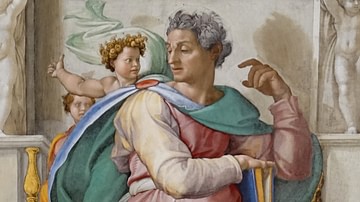
Definition
Isaiah
Isaiah was one of the major prophets of ancient Israel. Isaiah is Hebrew for "God is salvation." Isaiah is one of the longest prophetic books (66 chapters). Originating in the 8th century BCE, it was updated at least twice, in the 7th and...
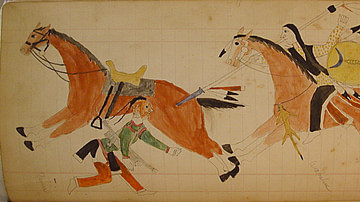
Definition
Cheyenne
The Cheyenne are a North American Native nation, originally from the Great Lakes region, who migrated to modern-day Minnesota and then to areas in North Dakota and further southwest. They are associated with the Plains Indians culture and...
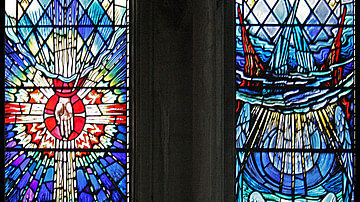
Article
Monotheism in the Ancient World
Monotheism is simply defined as the belief in one god and is usually positioned as the polar opposite of polytheism, the belief in many gods. However, the word monotheism is a relatively modern one that was coined in the mid-17th century...
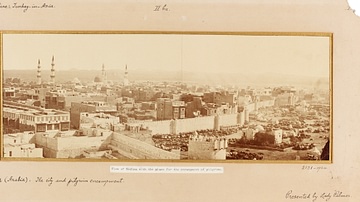
Image
View of Medina, c. 1880 CE
A photograph of the Islamic holy city of Medina, taken from the north-side by Colonel Muhammad Sadiq Bey on his second visit in c. 1880 CE. The Masjid al-Nabwi (or The Mosque of the Prophet Muhammad (c. 570 - 632 CE)) and the tomb of the...

Image
The Five Pillars of Islam (Arkan al-Islam)
This infographic illustrates the Five Pillars of Islam, which form the core practices of the religion, established during the lifetime of the Prophet Muhammad (7th century CE) —Shahada (faith), Salah (prayer), Zakat (charity), Sawm (fasting...